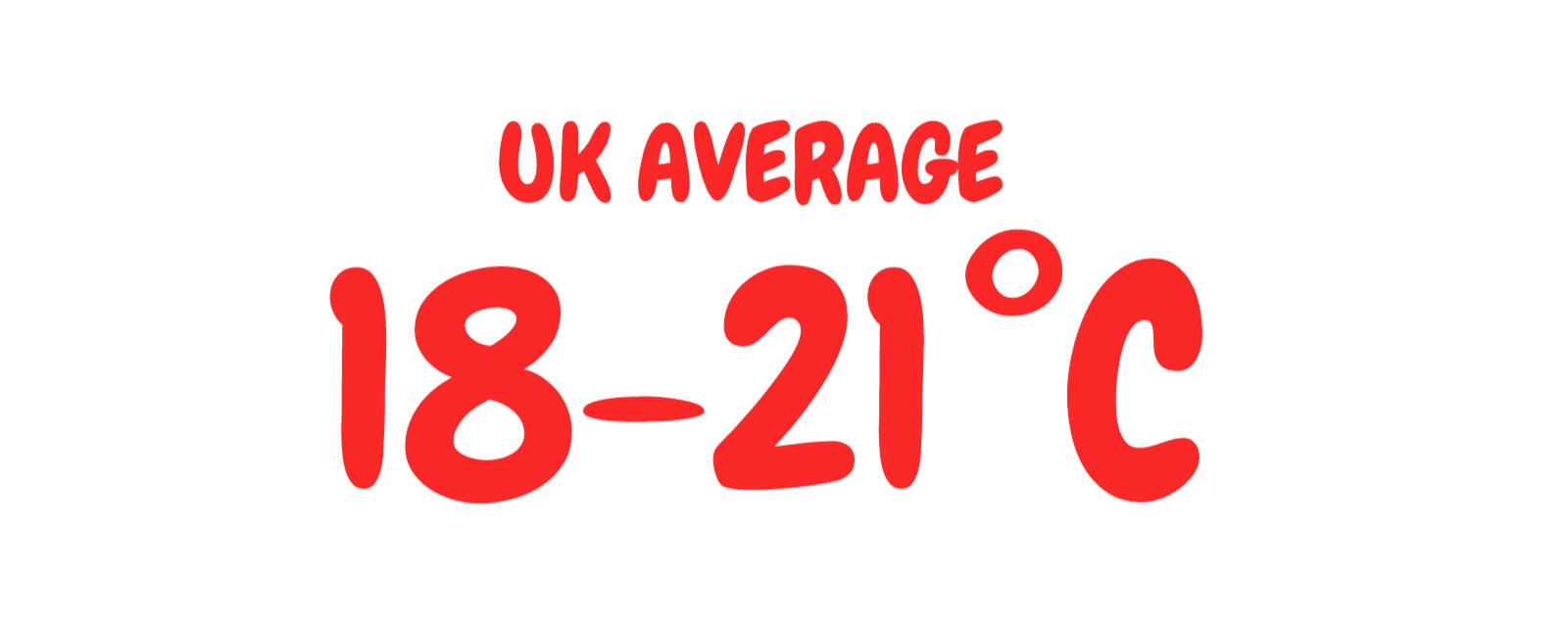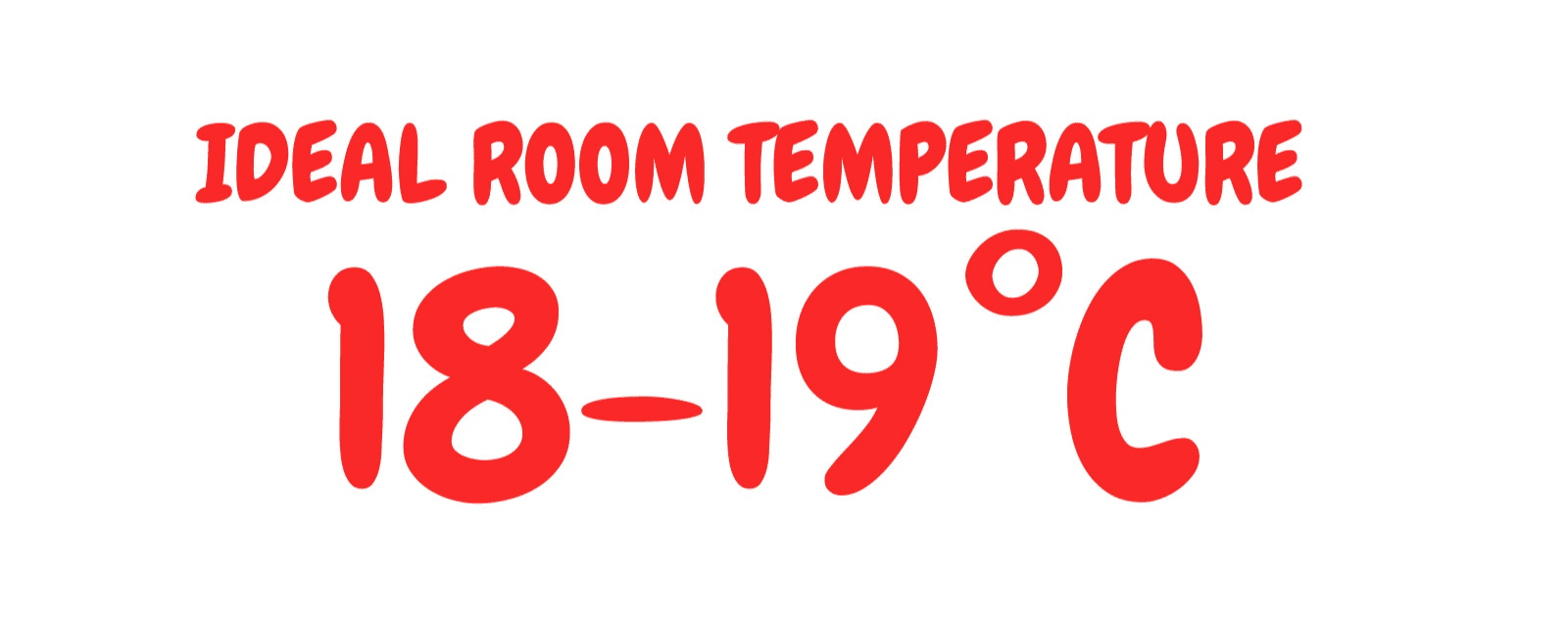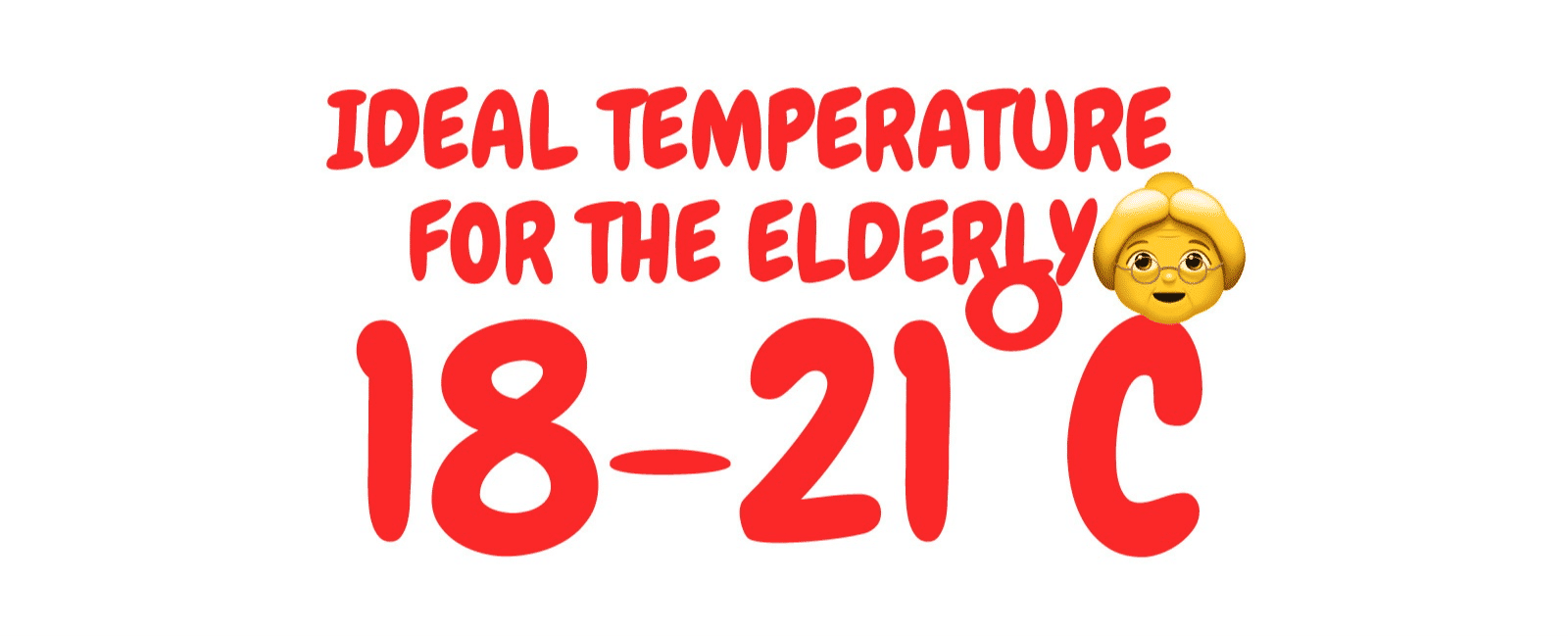The ideal room temperature is whatever the hell you want it to be. It's kind of mad you're reading this really, isn't it? The world's gone mad.
- But first, what is the average room temperature?
- How warm should your home be? What is the ideal room temperature?
- What is the best room temperature for sleeping?
- What is the ideal room temperature during winter?
- What is the ideal room temperature during summer?
- Why is it important to set your room to the right temperature?
- Consider using smart thermostat technology
- What is a smart thermostat?
- What is the ideal room temperature for an infant’s room?
- What is the ideal room temperature for the elderly?
- Maintaining your ideal room temperature
The temperature of your home can become a topic of debate (or divorce) among families.
No matter what type of home you live in, thermostat fights and feuds are commonplace.
You'll probably all disagree, but there has been some interesting research conducted to try and provide some actual answers to this question.
Ultimately, when managing the temperature of your home, three main factors come into play – comfort, cost, and efficiency.
In this guide, we will explore some of the most important questions:
What temperature should your home be during the night?
What temperature should your home be during the day?
What temperature will save, or end my marriage?
But first, what is the average room temperature?
Over the years, research has been conducted that revealed the average temperature is 18°C yet most people in the UK think that the ideal room temperature is 21°C.

This possibly indicates that most people are choosing to turn their thermostats down a few degrees in an attempt to save some money and/or help reduce their carbon footprint.
Genius.
How warm should your home be? What is the ideal room temperature?
The ideal ambient temperature or room temperature is considered to be around 18-19°C.

The optimum temperature changes depending on the amount of moisture in the air i.e. if there is a substantial amount of humidity, it is likely that you will still feel warm at lower temperatures.
So essentially, with lower levels of moisture, the higher the temperature should be.
According to the Energy Saving Trust reducing your thermostat by just 1°C can save you as much as 10% on your annual heating costs.
What is the best room temperature for sleeping?
The temperature of your room can have a huge impact on not only your ability to fall asleep but to maintain a healthy sleep cycle and achieve a restful night’s sleep.

We all know how it feels when it gets too hot, your body's temperature can soar and get to sleep can seem almost impossible, while being too cold can be just as troublesome.
The sleep experts at The Sleep Council recommend the ideal room temperature for sleeping is between 16°C and to 18°C.
What is the ideal room temperature during winter?
If your house is insulated well and free from horrible draughts, you should aim for an ambient temperature of between 18°C to 20°C.

If you are struggling to maintain comfort, you can also use supplementary items such as a higher tog duvet, or, well, thick clothes.
Turning down your boiler flow temperature could also save you up to 8% on your heating bill too, check our new guide on whether to turn the radiators off in unused rooms for another quick and free energy-saving hack.
What is the ideal room temperature during summer?
In summer, many UK homes struggle to stay cool since, well, it's summer.

In the summer months, you should aim for an ambient temperature of between 17°C to 19°C.
So stop feeling so sticky, you may feel more comfortable with a window open, to increase airflow, helping to prevent steamy heat build-up.
You may also find it helpful to switch your duvet for a lower tog count of around 4, or transitioning to lighter Egyptian linen
Why is it important to set your room to the right temperature?
You may be surprised but there are several consequences to setting your room temperature too high or too low.
It is useful to be aware of them so that you can take the necessary steps to avoid them.
What is the impact of setting your room temperature too high?
If you set your room temperature too high, you are likely to be incredibly uncomfortable, but also waste a considerable amount of money on your heating bills.
Reducing your thermostat by just 1°C can potentially save you 10% on your annual energy bill. That's a silly saving.
What is the impact of setting your room temperature too low?
By setting your thermostat too low, you are unlikely to achieve a comfortable room temperature.
Cold air also does not transport water vapour as efficiently, so it can end up depositing on walls and other surfaces, creating the perfect breeding ground for mould growth.
If it's too cold, ya'll gonna get mould.
Consider using smart thermostat technology
You can better modulate the temperature of your home by using a variety of smart devices, including smart meters and smart thermostats.
These allow you to better understand your energy use and enable you to control the temperature of the rooms within your home most easily.
Ultimately these devices help you to save more energy and therefore, keep your heating costs as low as possible and reduce your carbon footprint.
Smart technology you can use to save energy and reduce bills
TThe following smart devices can be installed to help set schedules, monitor usage, and take advantage of a whole host of innovative features:
Thermostat timer
Individual room thermostats
Thermostatic radiator valves
What is a smart thermostat?
Perhaps the primary defining feature of a smart thermostat is their ability to be synced to a Wi-Fi connection and controlled from electronic devices including mobile phones, tablets, and computers.
A traditional thermostat enables you to change the settings of your heating, set schedules and monitor errors and fault codes of your heating system.
Smart thermostats provide these basics and much more, allowing you to harness the power of technology for enhanced convenience and to save even more energy and money.
The best smart thermostats such as Nest by Google, help you control and monitor your energy use better than ever before and include ingenious features like remote location control, geofencing, carbon monoxide protection and frozen pipe protection.
What is the ideal room temperature for an infant’s room?
Babies typically have a slightly higher body temperature, so are more sensitive to heat than most of us.

The UK Baby Centre (yes, that's a thing) recommends having a baby’s room temperature anywhere between 16°C and 20°C.
The majority of baby monitors now come with a built-in thermostat, allowing you to easily monitor the temperature of your child’s environment.
You may find thermostatic radiator valves to be incredibly useful in their room too, allowing you to easily adjust the temperature of their room, without affecting the temperature of the rest of the house too much.
Curious to know which boiler brand performed worst? Find out in our report of the worst boilers.
What is the ideal room temperature for the elderly?
Elderly is generally defined as anyone above 65 years of age (sorry, Mum!) and people above this age are more vulnerable to the negative effects of cold winter weather.

The NHS advises that the room temperature for the elderly should be above 18°C.
Ensuring the home is properly insulated and draft proofed will also go a long way to ensuring the optimum temperature is maintained.
Learn all about combi boilers in our what is a combi boiler guide.
Maintaining your ideal room temperature
It is worth keeping in mind that in the UK, the ideal room temperature is around 18-19°C, which is incredibly easy to maintain with a smart thermostat.
Smart thermostats consider the weather, the thermal quality of the property itself, and even the location of members of the household.
All of this data provides valuable information to the system helping you save even more energy and money long term.
Read all about how to use a smart thermostat and see what temperature you should set your thermostat in winter.
How to get a new boiler 👻
You may need a new boiler.
You may need it fast, and with affordable monthly payments.
You may even need it from a company with top end local engineers, with 10,000 Trust Pilot reviews to back them up. Plus a Which? Trusted Trader award for good measure.
You may need a new boiler quote from us, Heatable 😘





